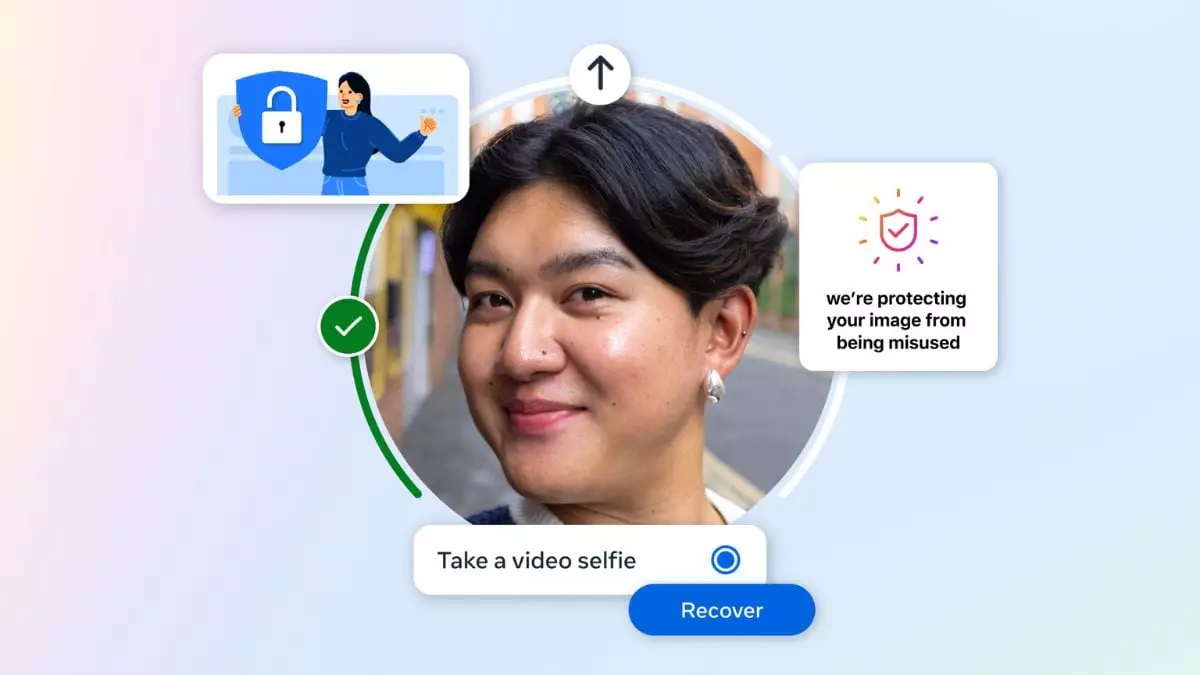On Monday, Meta made headlines by announcing its testing of facial recognition technology aimed at mitigating the risks posed by scam advertisements and facilitating quicker account recoveries for its users. This move underscores the increasing need for enhanced safety measures on social media platforms, particularly as scams become more sophisticated. With a focus on identifying “celeb-bait” ad scams, where unscrupulous individuals exploit the images of celebrities to ensnare unsuspecting users, Meta is positioning itself as a forward-thinking player in the social media landscape.
Meta’s initiative is particularly relevant in light of the prevalence of “celeb-bait” ads across its platforms, including Facebook and Instagram. These deceptive advertisements rely heavily on the recognition and trust associated with celebrities and public figures, weaving a web of deceit that many fall into due to their familiarity and admiration for these personalities. By utilizing facial recognition to compare ad images with verified profiles, Meta aims to turn the tables on scammers who prey on users’ emotions and trust.
The company’s stated goal is to systematically remove harmful content from its platforms, a pledge that resonates with users who have long expressed concerns regarding online safety. The implementation of this technology could pave the way for more effective detection and elimination of fraudulent ads, thereby fostering a safer online environment.
Meta has relied on machine learning to power its native ad review system, which currently detects fraudulent ads among millions across its platforms. This existing system analyzes textual content, images, and videos featured in advertisements to filter out scams. The integration of facial recognition technology into this protocol is poised to enhance the precision of the ad review process significantly. By automatically blocking ads that are confirmed as scams through facial recognition comparisons, Meta can potentially save users from falling victim to malicious schemes.
Importantly, this initiative is not limited to ad scams alone. The technology also serves to identify and take action against accounts that impersonate public figures, thus bolstering trust in the authenticity of verified profiles. Currently in its initial testing phase, this technology is being refined with a select group of celebrities, allowing Meta to assess its effectiveness and speed in detection.
Beyond combating advertisement scams, Meta’s foray into facial recognition also extends to improving account recovery processes. Traditional methods for verifying identity, such as submitting a government-issued ID, can be cumbersome, particularly for users who may have lost access to their accounts. By enabling users to upload a video selfie for identity verification, Meta is streamlining the process, allowing for quicker access recovery in the event of a compromised account.
This innovation not only addresses the frustrations users face when locked out of their accounts but also reinforces the importance of identity verification in an age where digital security is paramount. Meta’s focus on privacy is evident as the company pledges not to store any facial data generated during this process, maintaining a balance between user security and privacy considerations.
While these advancements herald a new era of safety on Meta’s platforms, they also raise critical ethical questions about privacy and surveillance. The implementation of facial recognition technology can spark debate regarding its implications for user data protection and consent. As users are enrolled in protective measures, it is essential that Meta provides transparency and control over how their biometric data is utilized, ensuring that users are not only protected but also respected.
Meta’s exploration of facial recognition technology presents a significant development in combating scams and facilitating account recovery. By specifically targeting celeb-bait scams and streamlining identity verification processes, the social media giant showcases a commitment to enhancing user safety. However, as the company moves forward, it must tread carefully and consider the ethical implications of its technological advancements. Ultimately, the successful implementation of these features could usher in an era of increased security and trust for users, setting a precedent within the industry for prioritizing user safety alongside innovation.

Leave a Reply